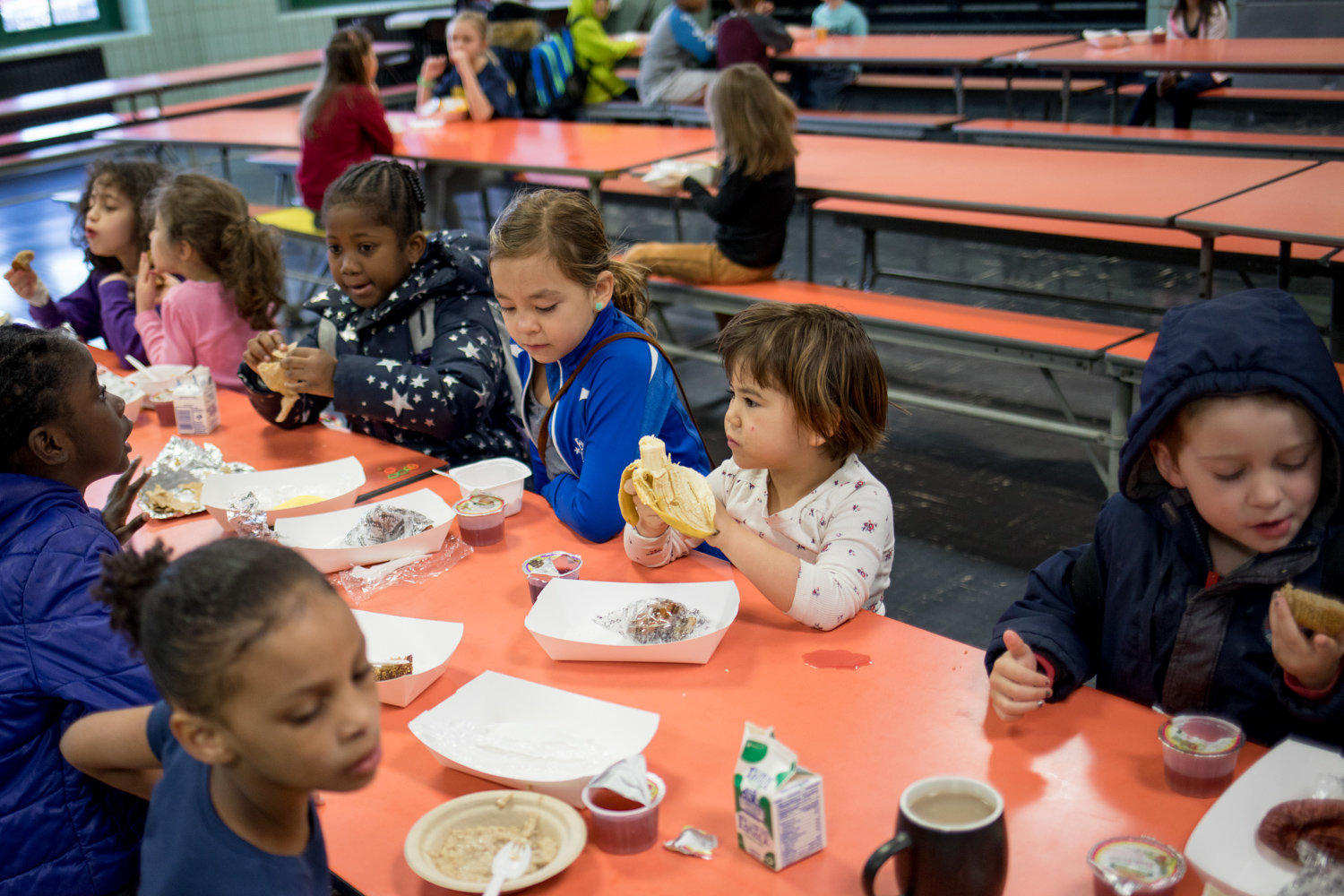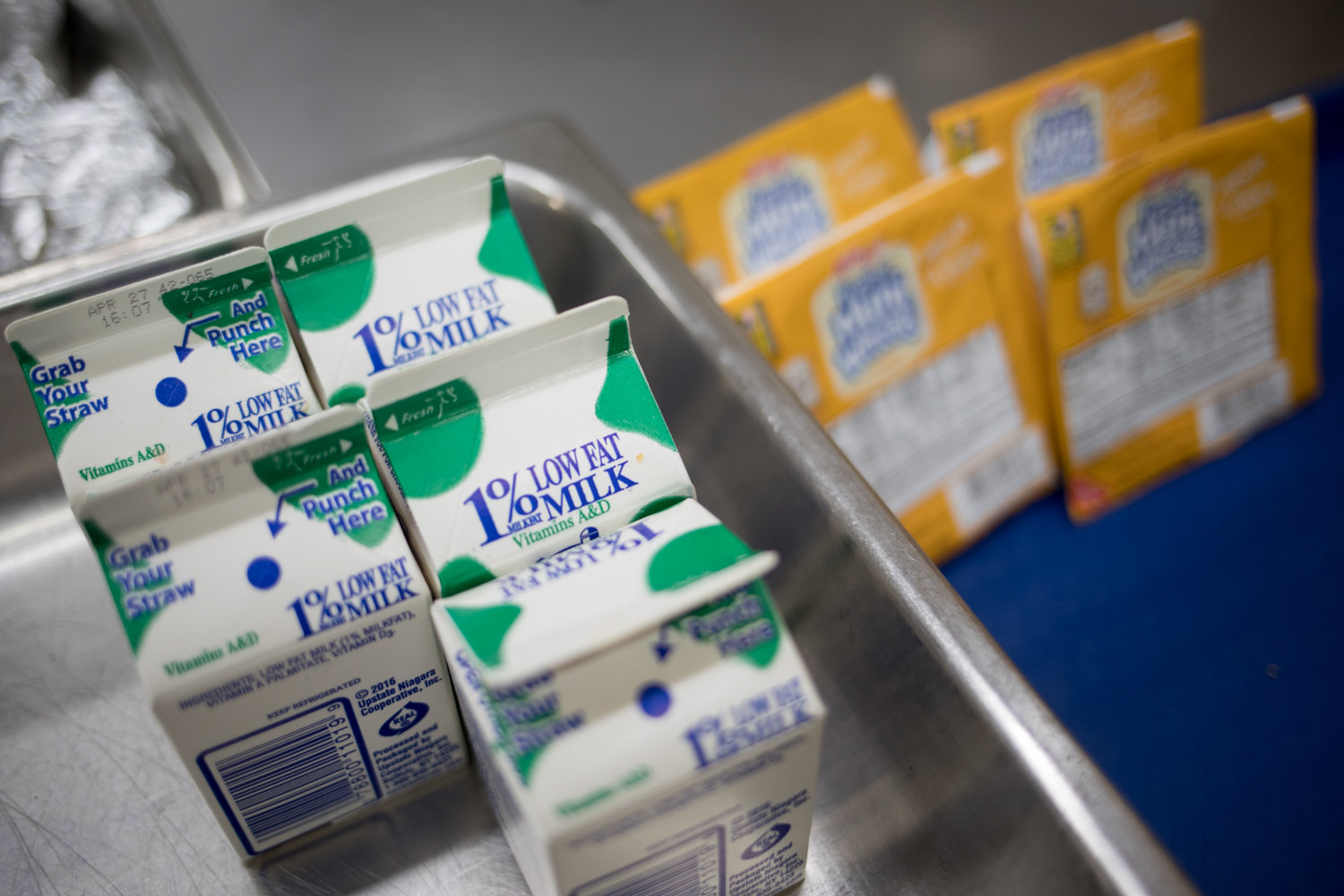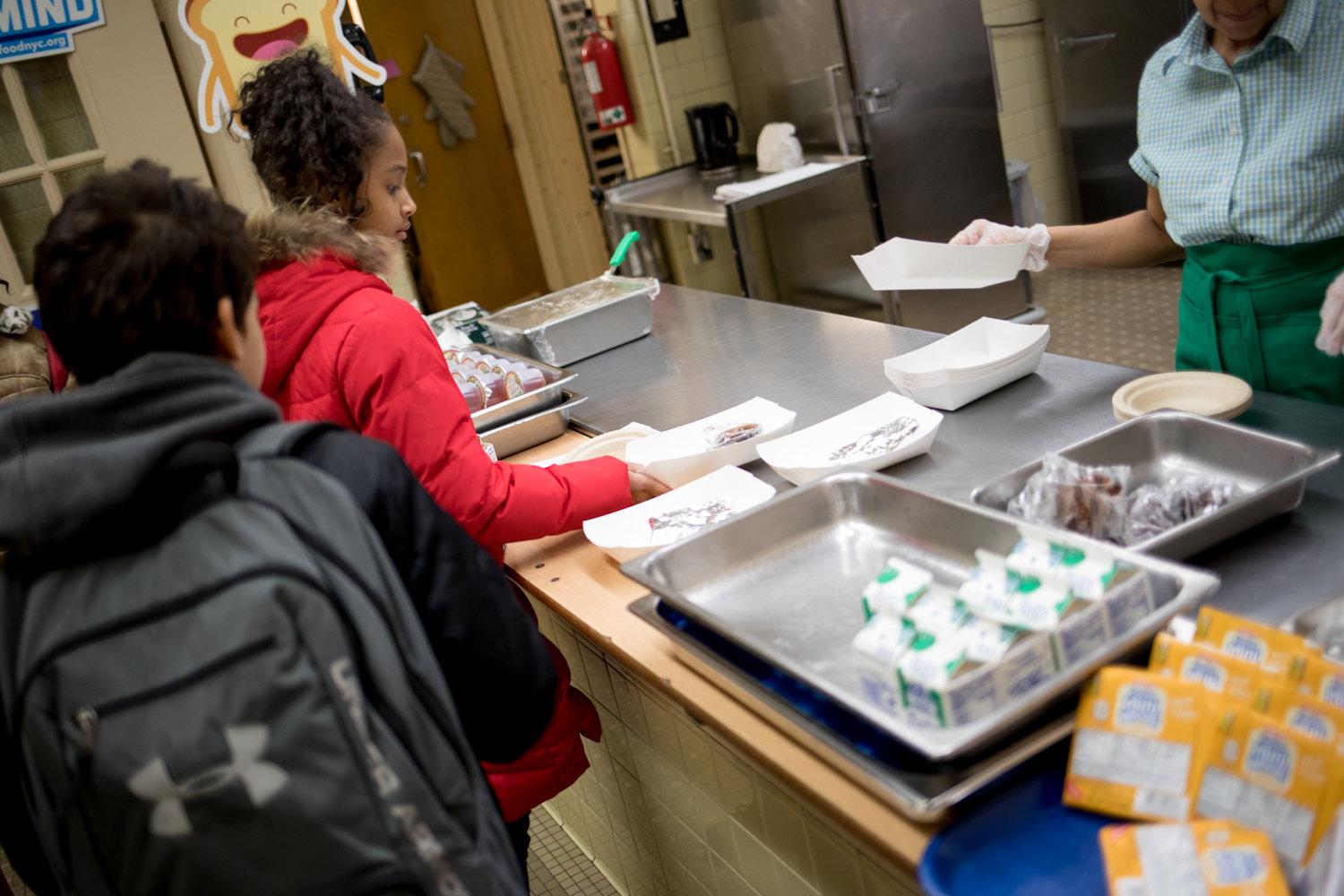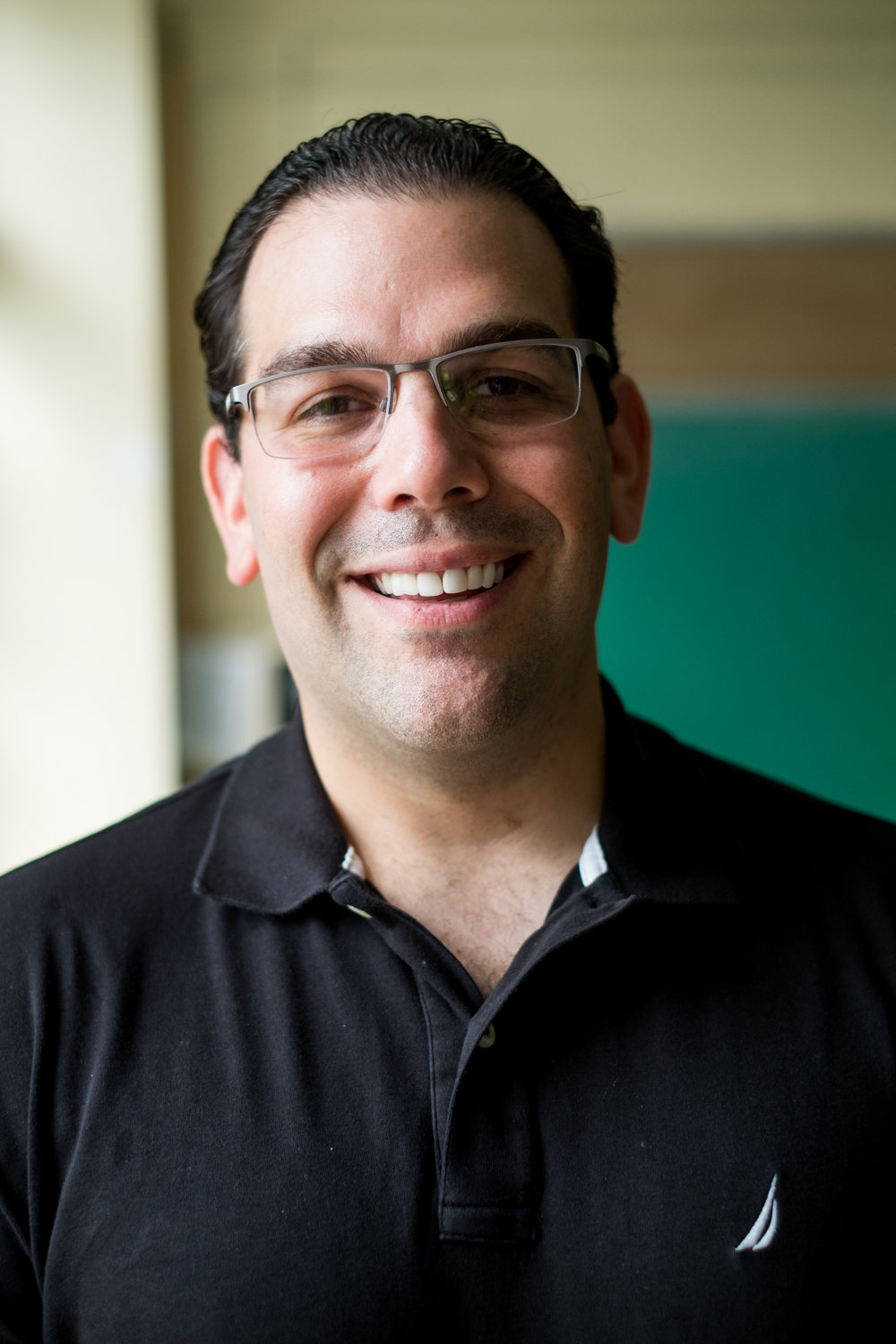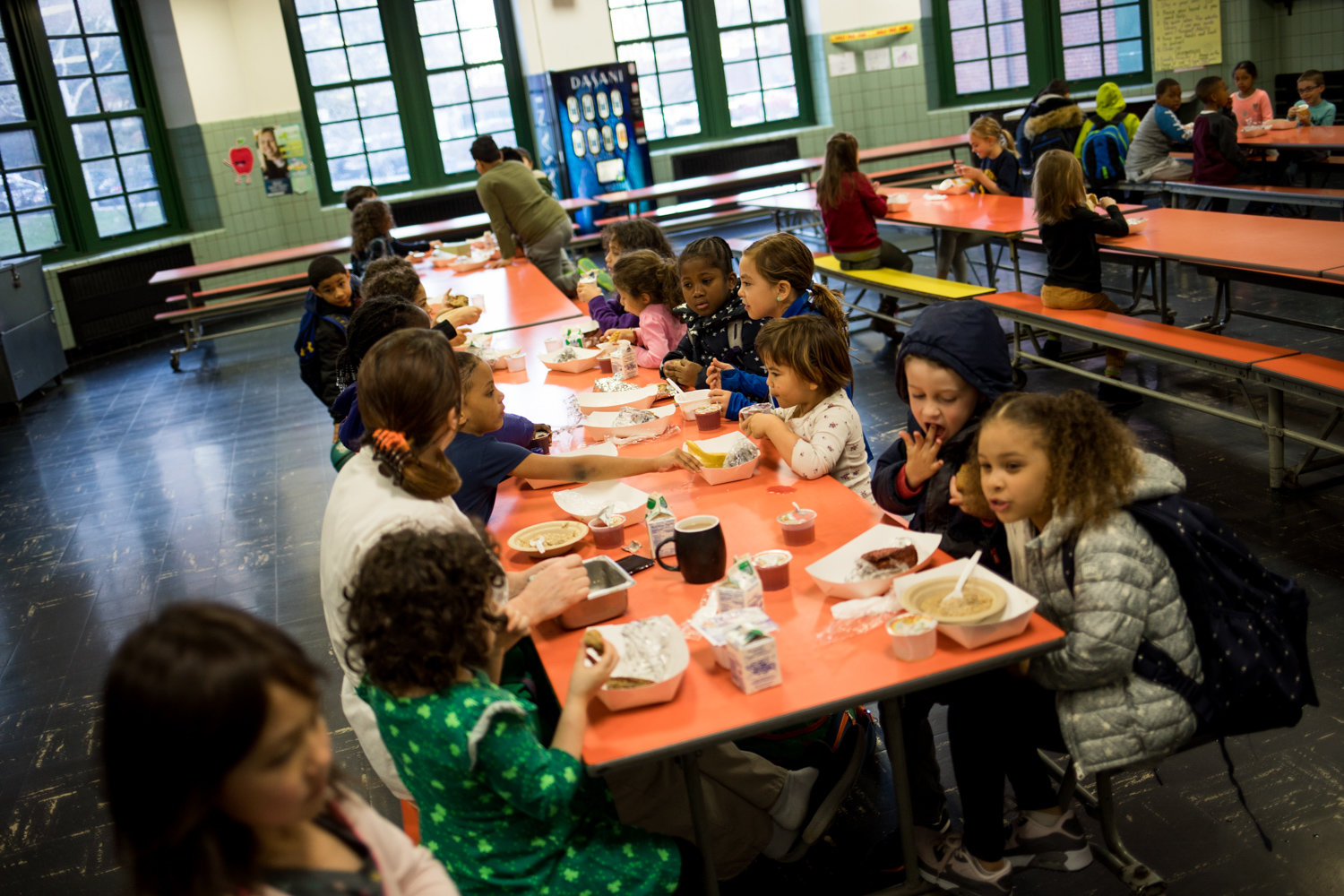Will free breakfasts stay hampered by early start times?
American school lunches might be one of the best-known meals in pop culture. Cafeterias feature in teen movies through the ages. Food fights erupt, couples break up, new students wander through tables looking for a seat.
In real life, though, lunch time means students can get a break, sit down for a few minutes, and most importantly, eat. But the midday meal is not the only one available to New York City’s public school students.
Free school breakfast doesn’t get the same attention, and according to pre-coronavirus pandemic report from the Food Research and Action Center, only 45 percent of public school students use the free breakfast program. That’s the worst free breakfast participation rate of any major city in the United States.
The program’s expansion, implemented by then-schools chancellor Carmen Farina, allowed an estimated additional 200,000 students to start getting free lunch, according to reports published at the time.
“We have, I would say, a couple dozen” students who use the breakfast program, said Steven Schwartz, principal of P.S. 24 Spuyten Duyvil, last spring before schools shut down in the wake of the coronavirus pandemic. “Some days we can have 30 kids up there, some days just a handful.”
The biggest obstacle connecting kids with the day’s most important meal? Getting to school on time.
Many of P.S. 24’s students arrive to the West 236th Street campus by bus, and by the time many of them arrive, there just isn’t enough time to sit down and get a bite to eat before classes begin.
“A lot of our kids that do bus are eligible for breakfast, but if something happens to the bus and they’re running late, we do still offer them breakfast,” Schwartz said. “But it’s kind of expedited. We give them the breakfast and they take it up to their classroom. That’s only if they arrive within a certain timeframe.”
Buses have sometimes arrived up to an hour late, the principal admits, and those kids usually miss out on breakfast since the cafeteria workers already are working on lunch by then.
“In just talking to parents, whenever kids arrive and they’re not feeling well, they’re in a bad mood, the first question we ask is, ‘Did you eat breakfast?’” Schwartz said. “There’s definitely a correlation between nutrition and how the children are feeling that day.”
It’s not just their mood that can be affected by not eating — students who don’t eat in the morning often have trouble listening once they get to class, said Eric Dinowitz, a city council candidate who also works as a special education teacher.
“It not only interferes with a child’s ability to succeed academically, and to engage even emotionally in a class,” he said. “And that’s just the short term, of course. We know kids who are malnourished get sick more often, they miss more school. There are a lot of negative effects of our children missing a meal.”
At P.S. 24, Schwartz has had conversations about starting school later to reduce student and parent stress in getting out the door in the morning. That might also allow more students to eat breakfast at school. But those conversations are all hypothetical for now, and likely won’t get anywhere until after schools completely return to normal with the conclusion of the COVID-19 crisis.
There are some options for late students. Schools can offer breakfast in the classroom or leave some quick grab-and-go options for students to take if they don’t have time for a full meal.
“That all increases participation in the program,” Dinowitz said, adding that making sure students and families know their options is key to the program succeeding.
Full breakfast at P.S. 24 starts in the cafeteria at 7:35 a.m., during normal times, Schwartz said, and classes start 25 minutes later. He knew that school bus pickup times could vary — some members of the gifted and talented class, he said, live further away, as do some students who started school while living in the area but chose to finish out their elementary years at P.S. 24 while living a greater distance away.
Schwartz wasn’t sure if those students were picked up significantly earlier than other students by bus, but it may take them longer to get to school and more likely to make them miss breakfast.
When it comes to children going hungry, the Bronx is one of the worst in the city, with some 30 percent not having adequate access to food in 2018, according to a study by Hunger Free America. That means that nearly a third of children rely on school meals to get them through the day.
Before schools closed in March, city officials and educators had a tough decision to make. Closing schools would take away the source of at least one meal for students.
To remedy that, hundreds of grab-and-go meal pickup stations were organized at schools across the five boroughs, allowing students and parents to drop by and pick up meals they might otherwise miss, including at P.S. 207 on Godwin Terrace and Riverdale/Kingsbridge Academy on West 237th Street.
More students at P.S. 24 participate in free lunch, Schwartz said. Lunch doesn’t have the same time constraints as the early-morning breakfast, and students can choose whether or not to take a packed lunch from home, or just choose from the cafeteria menu.
“I would say on any given day, roughly 300 to 350 of our close to 900 students would eat the free lunch,” Schwartz said. “It is a lot more when pizza is being served on Fridays.”
Breakfast isn’t the only thing P.S. 24 offers during more normal times, Schwartz said. There’s also early-morning sports and yoga programs for students, encouraging them to get to school earlier to get off on the right foot. That might also give them an opportunity to get some food while they’re at it.
P.S. 24 sends out regular reminders to parents that the program is available, Schwartz said, and they’re sure to remind them that children aren’t obligated to attend every day or every week. If they miss a few meals, they’re always welcome to come back.
“We have to make sure that all of our children know about the program, and that all of the families are informed,” Dinowitz said. “The city has a job to do to make sure that more children participate.

